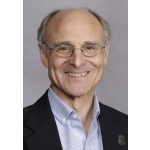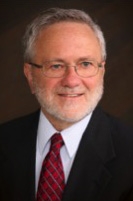 |
By Andy Kiorpes, Awards Committee Chairperson
The Awards Committee is pleased to announce that Dr. Samuel M. Cohen is the recipient of the 2016 Distinguished Scientist Award. If you are attending the Annual Meeting, we invite you to join the College for the Awards Ceremony and Luncheon on Monday, November 7 from 12:00 noon–2:00 pm. Dr. Cohen will be the keynote speaker, and the 2016 recipients of the Service Award, Young Professional Award, Carol C. Lemire Unsung Hero Award, Student Travel Awards, Student Furst Award, the President’s Award for Best Paper Published in the International Journal of Toxicology, the North American Graduate Fellowships, and the International Travel Grants will be announced. ACT is delighted to celebrate the accomplishments of the recipients of each of these awards.
 Samuel M. Cohen, MD, PhD Samuel M. Cohen, MD, PhD
Talk Title: Toxicology: It's Still the Dose
Dr. Samuel Cohen received his MD and PhD degrees from the University of Wisconsin—Madison in 1972, completed a pathology residency at St. Vincent Hospital, Worcester, Massachusetts, in 1975, and became board certified in anatomic and clinical pathology the following year. He was a visiting professor at Nagoya City University Medical School, Nagoya, Japan, with Dr. Nobuyuki Ito from 1976 to 1977, a staff pathologist at St. Vincent Hospital from 1975–1981, and associate professor of pathology at the University of Massachusetts Medical School from 1977–1981. In 1981, he became Professor and Vice Chairman of Pathology in the College of Medicine and Professor at the Eppley Institute, University of Nebraska Medical Center (UNMC), and served as Chairman of the Department of Pathology and Microbiology at UNMC from 1992–2007. Dr. Cohen’s research has focused on mechanisms of carcinogenesis, with an emphasis on the role of cell proliferation in the carcinogenic process, primarily utilizing the urinary bladder as a model system. Most recently this has involved investigations into the mechanisms of bladder carcinogenesis produced by arsenicals and PPAR agonists. Research with PPAR agonists has also led to investigations into mechanisms of induction of hemangiosarcomas. In addition, his research has involved clinical investigations of various aspects of urologic pathology and extrapolation between animals and humans. He also has been active in mathematical modeling efforts and applications to risk assessment. This research has resulted in more than 400 publications. He has been a member of numerous NIH, EPA, FDA, WHO, IARC and National Academy of Sciences study sections and scientific panels, was a member of the National Toxicology Program’s Board of Scientific Counselors and on the NIEHS Board of Scientific Counselors. He is currently on the editorial boards of six scientific journals in the areas of toxicology, pathology, and carcinogenesis, and is a reviewer for numerous other journals. He was president of the Society of Toxicology (SOT) Carcinogenesis Specialty Section and the SOT Central States Chapter. He was the recipient of the SOT Arnold J. Lehman Award in 2001, was named Distinguished Scientist in Cancer Research by the Japanese Foundation for Cancer Research in 2004, was awarded the George H. Scott Award from the Toxicology Forum and Lifetime Achievement Award from the Association for Environmental Health and Sciences in 2012, and received the Lifetime Achievement Award of the Society of Toxicologic Pathology in 2015. He continues to be active in human surgical pathology. He has been actively involved with the International Life Sciences Institute (ILSI), and Health and Environmental Sciences Institute (HESI) since 1985, serving as a member of the ILSI and HESI Boards of Trustees since 2007 and 2001, respectively. He is a fellow of the Academy of Toxicological Sciences (ATS) and currently serves on its Board of Directors, is a fellow of the International Academy of Toxicologic Pathology, and he is a member of the Flavor and Extract Manufacturers Association (FEMA) Expert Panel. In addition to research and clinical activities, he has been active in medical and graduate studies education, mentoring postdoctoral fellows and active in the pathology residency program (director for four years). He has served as research advisor for 2 MD/PhD, 2 MD, 6 PhD and 2 MS students, has served on supervisory committees for an additional 3 MD/PhD, 4 PhD and 14 MS students, and has mentored 24 postdoctoral fellows. Of these students and fellows, eight have become chairs of academic departments or directors of government agencies.
|